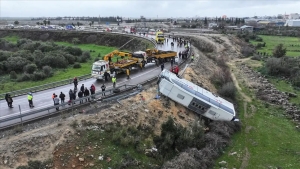Demand for home bunkers is sharply increasing in Germany

At a time when the geopolitical situation in Europe is intensifying, the German population is seeking new solutions to ensure their safety. This was reported by Zamin.uz.
In recent months, there has been a noticeable increase in demand for personal shelters in the country, namely mini-bunkers designed for home use. The BILD publication provided information about this.
According to analysts, the fear of provocations that could arise from Russian military forces or drones is causing strong anxiety among German citizens. For this reason, local manufacturers are offering new types of security devices.
One of these is the “home bunker” prototype developed by the BSSD Defence company. This protective structure covers an area of 16 square meters, with walls made of 20-centimeter-thick reinforced concrete.
The engineers who created the project describe this shelter as a mini-home that allows autonomous living seven days a week. Inside, there are four foldable beds, a shower, a toilet, a small kitchen, and a screen replacing a window.
The lighting system can change color and brightness according to the human mood. According to Mario Payde, head of BSSD Defence, this shelter can withstand drone attacks, mortar shells, and even 107-millimeter rocket strikes.
If the bunker is placed several meters underground, it has the capability to reduce the impact of a nuclear explosion within a 20-kilometer radius. Payde also expressed his hope that people will perceive these bunkers not as frightening concrete boxes but as modern protective tools and symbols of peace of mind.
The starting price of the “home bunker” begins at 50,000 euros, with a fully equipped version reaching up to 150,000 euros. Each bunker requires approximately 70 working days to prepare.
Experts believe that interest in such products is rapidly increasing in various cities across Germany. Some manufacturers plan to implement these mini-bunkers not only for private homes but also for businesses, schools, and small towns.
Economists suggest that the “home bunker” trend marks a new stage in European security policy. Citizens are now thinking more not only about stable electricity supply or internet but also about physical protection.
Especially during the cooling of relations between Russia and the West, this approach indicates that the culture of security in European society is reaching a new level.







